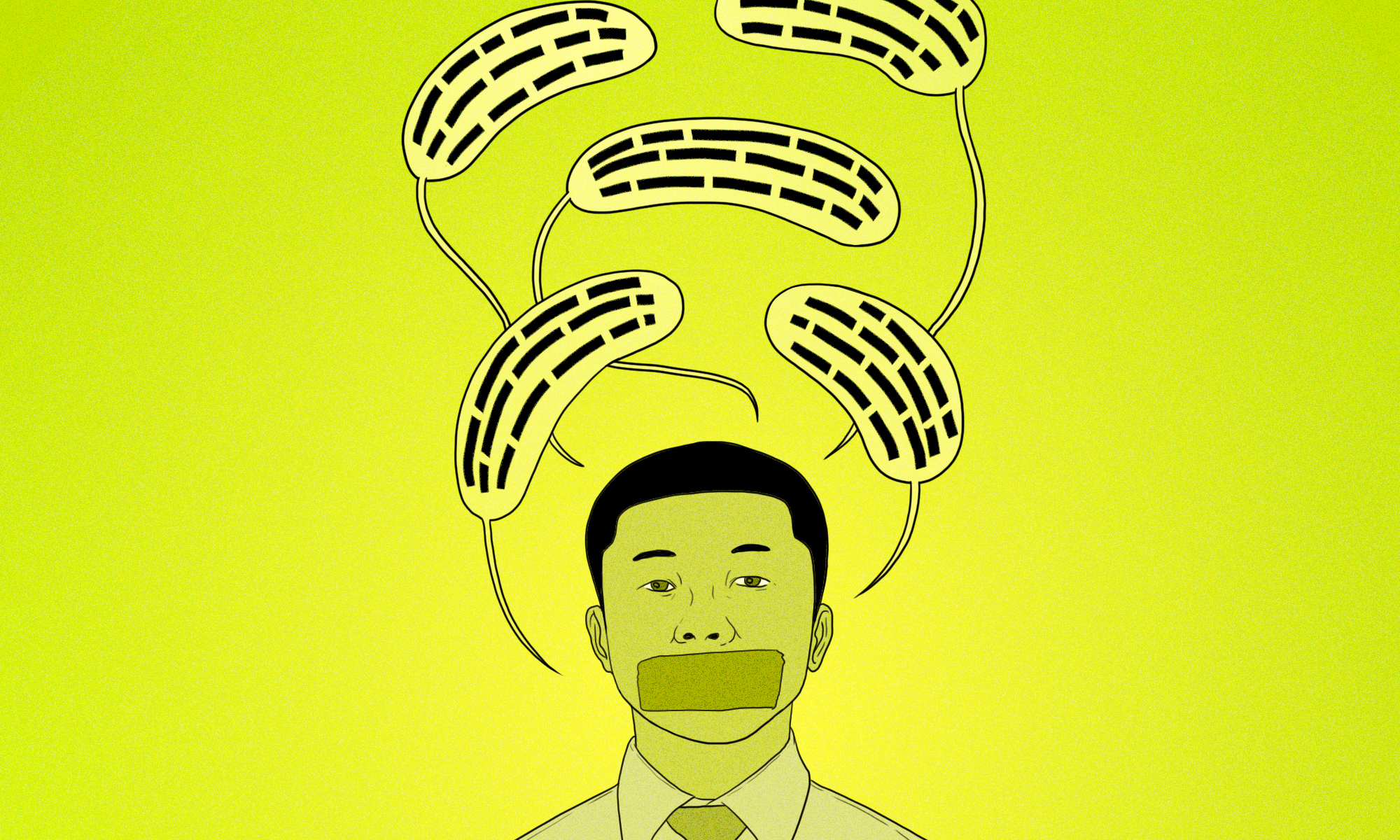2021: The year in censored terms on the Chinese internet
What was censored in the past year?

Chinese authorities have become extremely seasoned in controlling what its billion-plus internet users talk about online. Apart from its main censorship apparatus, the Great Firewall (which straightaway blocks websites such as Google, the New York Times, etc.), and keyword filters built into social media platforms by tech companies, human censors have become adept at wiping out topics and words that they deem a threat to the stability of the regime. (Or, in some cases, offensive to their sensibilities.)
Earlier this month, we published a list of 2021’s top buzzwords and internet slang, as selected by the National Language Resources Monitoring and Research Center at Beijing Language and Culture University. Below is a list that we’ve curated: terms (and apps and websites) that were censored on the Chinese internet, presented chronologically.
Two notes: 1) This is not a comprehensive list by any means, but a reminder of the constant presence and variegated forms of censorship in China. 2) Some of these terms may no longer be blocked or considered sensitive on social media, though authorities never announce when subjects go off the “censored” list.

Clubhouse
February 8, 2021
Social audio app Clubhouse was blocked around 7 p.m. on February 8 in response to a spirited discussion about Xinjiang that had happened the previous weekend. (See Darren Byler’s column about the offending chat room). In addition, Clubhouse had hosted discussions about Tibet and Taiwan. Some Chinese users noted that their mainland China phone numbers could not receive verification messages to register for new accounts.
The essay “My Mother” (我的母亲 wǒ de mǔqīn)
April 19
Former Chinese premier Wēn Jiābǎo’s 温家宝 eulogy for his mother was blocked by internet censors, possibly because he spoke out of line. A short article about Wen’s mother, who passed away last December, was first published in Macau Herald, a small local weekly newspaper, on April 16, and was later circulated on WeChat before being censored three days later.
Wen wrote, “In my mind, China should be a country full of fairness and justice, always with a respect for the will of the people, humanity, and human nature. There should always be youthfulness, freedom, and a spirit of striving.” Several analysts pointed out that the words “fairness and justice” may have triggered the censors.
Nomadland (无依之地 wú yī zhī dì), Chloe Zhao (赵婷 Zhào Tíng)
April 30
After Chloe Zhao won the Oscar for her movie Nomadland, her name was wiped off the Chinese internet. Why? The Beijing-born director had previously made a comment about China being a place “where there are lies everywhere.” This comment, published in 2013 in Filmmaker Magazine, provoked fierce backlash. Ironically, just a month before her “anti-China comment” was revealed, Chinese state-run tabloid Global Times referred to Zhao as the “pride of China.”
Nomadland had been scheduled to hit Chinese theaters in April, but that plan was quietly nixed. Chinese movie rating website Douban deleted the movie’s China release date. Posters of Nomadland, as well as Zhao’s Chinese name, were censored on Weibo.
The Seventh National Population Census (人口之惑 rénkǒu zhī huò)
May 15
Several social media articles questioning the credibility of the Seventh National Population Census were taken down. A number of articles and comments challenged the accuracy of the census, saying the population growth in 2020 — reported as 117.3 million — was in no way authentic, given the population growth from previous years.
One article, “Confusion of the Population” (人口之惑 rénkǒu zhī huò), was blocked on Chinese social media app WeChat.
Ruling documents on the website China Judgments Online
June
More than a million court rulings from China Judgments Online (中国裁判文书网 zhōngguó cáipàn wénshū wǎng), the official court ruling database under the Supreme People’s Court, were removed from the site. The database noted that the removal of these documents was due to the site being in a “migration” process. (Apparently they are still being migrated, because they have not come back.) An online user compiled a list of the missing documents.
Chinese universities’ LGBT social media accounts
July 6
Some of the social media accounts that were shut down include:
清华大学purple
北京大学colorsworld
中国人民大学RUC性与性别研究社
复旦大学知和社
武汉大学WHU性别性向平等研究会
WeChat removed at least 14 public accounts run by LGBT groups in universities and civil society, including Purple (run by Tsinghua University’s LGBT student group) and Colorworld (run by Peking University), citing violations of regulations. It remains unclear whether the crackdown was an order from authorities or if it was an act of self-censorship by Tencent, the tech company that runs WeChat. Articles previously posted by these accounts were erased and the searches for these accounts yielded the error message “unnamed public account” (未命名公众号 wèi mìngmíng gōngzhònghào).
Zhào Wēi 赵薇
August 26
The prominent Chinese actress Zhao Wei’s work was suddenly erased from the Chinese internet. All film productions associated with her were taken down from streaming platforms and movie rating websites like Douban. (The actress resurfaced on social media a couple weeks later.) So far there has been no official explanation or comments about her abrupt cancellation.
#Metoo (米兔 mǐ tù), 朱军 Zhū Jūn, 弦子 Xiánzi
September 15
Censors got to work after a Chinese court ruled against Zhōu Xiǎoxuán 周晓璇, a.k.a., Xianzi, in her sexual harassment lawsuit against prominent Chinese TV anchor Zhū Jūn 朱军, citing insufficient evidence. Photos and videos taken outside the courthouse and updates on the case were taken down from the microblogging site Weibo, and some who posted this content found their account suspended.
Péng Shuài 彭帅 and associated terms: Zhāng Gāolí 张高丽, tennis (网球 wǎngqiú), certain emojis (🎾), Zhūgé Liàng 诸葛亮, etc.
November 2
The biggest news story of the year, as far as the international attention it received. But within China, Peng Shuai’s accusations against former vice premier Zhang Gaoli, that he coerced her into sex, have been roundly censored. Within 20 minutes after she posted a letter on her Weibo on November 2, her entire account was shut down. At one point, the word “tennis” was banned for “violation of community guidelines,” as well as the tennis ball emoji. Any words or allusions to the incident were banned. The famous Chinese historical figure Zhūgé Liàng 诸葛亮, whose name shares the same initials as Zhang Gaoli, was blocked at one point.
https://twitter.com/alexludoboyd/status/1455572489069809664
Don’t leave the cage unless strictly necessary (非必要不出笼 fēi bìyào bù chūlóng)
November 22
A performance art piece created by students from the Beijing Film Academy using iron cages with a banner “Don’t leave the cage unless strictly necessary,” as a way of protesting the school’s strict COVID lockdown rules, was quickly blocked by Weibo.
Golden Horse Award (金马奖 jīnmǎ jiǎng); Revolution of Our Times (时代革命 shídài gémìng)
November 27
Mainland China decided to boycott Taiwan’s Golden Horse Film Festival in August 2019 because of pro-Taiwan independence comments made by award-winning director Fu Yue (傅榆 Fù Yú). Ever since, the China Film Administration has forbidden mainland film productions from competing in the most influential Mandarin-language film festival. In spite of this, Chinese social media accounts have consistently written about the awards — until recently, when Revolution of Our Times, a documentary about the 2019 Hong Kong protest, was awarded Best Documentary. The term “Golden Horse Awards” became a “sensitive term” on Weibo. Nationalistic online users trolled the Golden Horse Awards both inside and outside the Great Firewall.






